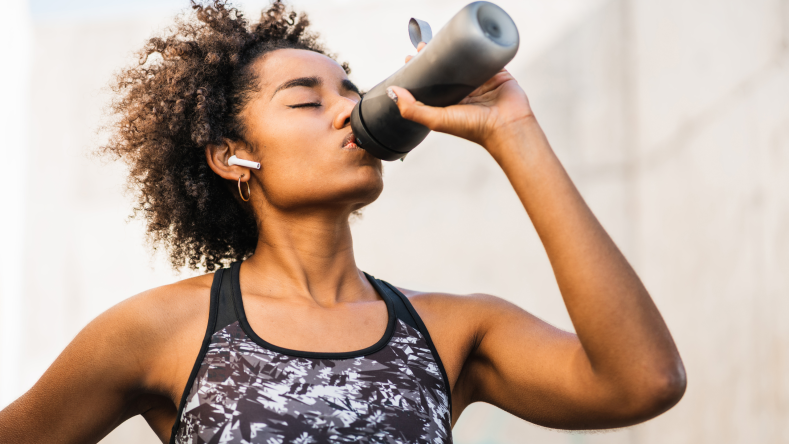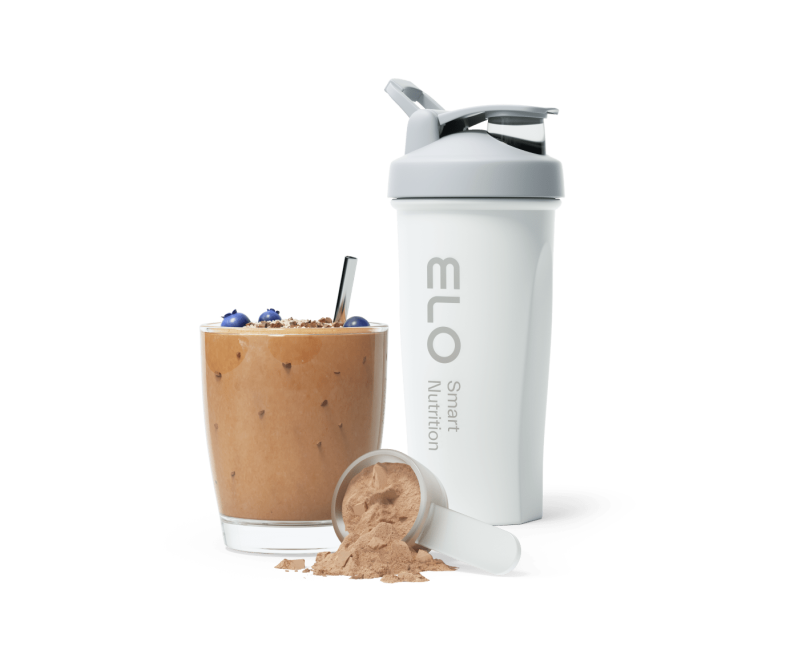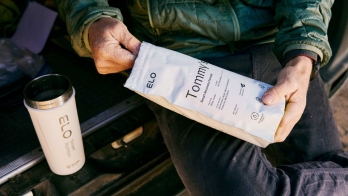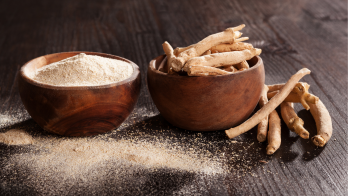Pre workout for women: what you need to know
Pre workout supplements are a popular choice among gym-goers and athletes who want to take their workouts to the next level. But is pre workout bad for you, who should take it, and are there any side effects? Here’s everything you need to know about pre workout for women.

Whether you’re new to the fitness space or are a seasoned athlete, there’s a chance you’ve heard all about the hype surrounding pre workout. Many people believe that this form of supplementation can significantly boost performance, increase energy, and prolong endurance, making it a popular choice among men and women alike.
However, all pre workout supplements are not created equal. Pre workout for women may contain different ingredients than the ones formulated for men and may not be appropriate for pregnant or breastfeeding women. Furthermore, some people may experience some negative side effects when taking pre workout supplements.
But do the benefits outweigh the cons? Let’s dive into the world of pre workout supplements to see if their hype lives up to the science.
What does pre workout do?
Pre-workouts are a blend of various supplements that are designed to boost energy, focus, performance, and muscle protein synthesis during exercise.
Some common ingredients found in pre-workout supplements include beta-alanine, caffeine, citrulline, tyrosine, taurine, creatine, niacin, and arginine [ 1
When to take pre workout
The recommended time to take a pre-workout supplement will vary depending on the specific product and its ingredients. However, it’s generally recommended that you take pre-workout supplements 15-30 minutes before starting your workout since this will allow enough time for the ingredients to take effect [ 2
How long does pre workout last?
The effects of most pre-workout supplements last at least 2 hours. However, this will vary by ingredient. For example, caffeine can take between 1.5 - 9 hours to wear off, whereas arginine can wear off in 1 - 2 hours [ 3 4
Pre workout for women
While pre workout supplements can be beneficial for both men and women, they are not all created equal. Here are some key factors to consider when choosing a good pre workout for women.
Caffeine content: Women may be more sensitive to caffeine than men, so you might want to choose a pre-workout with a lower caffeine content.
Ingredient list: Some pre-workout supplements may contain ingredients that are not necessary or that may not be suitable for women, such as testosterone boosters.
Fitness goals: You should look for a pre-workout that is tailored to your specific fitness goals, such as improved endurance, strength, or muscle mass.
Benefits of pre workout for women
Athletes and gym-goes alike have long touted the benefits of pre workout supplements, but are these claims substantiated? From endurance to performance, here’s what science has to say about pre-workout benefits for women.

Improved endurance
Beta-alanine is a common pre workout supplement ingredient that has been shown to improve endurance by reducing the build-up of lactic acid in your muscles.
Studies indicate that physically active adults who supplemented with beta-alanine had reduced lactate concentration and an improved 10 km running time compared to those who didn’t supplement [ 5 6
Helps build lean muscle
Studies have shown that taking a pre workout in conjunction with resistance training can lead to increased lean muscle mass [ 7 16 17 18

Better strength
Creatine is a common ingredient in pre workout supplements that has been found to increase the production of ATP, a molecule that provides energy to cells. This can lead to increased strength, power, and overall athletic performance [ 8
Enhanced physical performance
Studies indicate that taking caffeine before a workout can lead to delayed perceptions of fatigue, pain, and effort, preserved muscle glycogen content, and increased time to exhaustion [ 9 9
How to take pre workout
Whether you are new to fitness or just looking to level up your gains, here are some helpful tips for how to take pre workout supplements.
Assess tolerance: If you are new to pre-workout supplements or are sensitive to caffeine or other stimulants, it's a good idea to start with a small dose and see how well you tolerate it before increasing your dosage.
Stay hydrated: Pre-workouts are stimulants, which means they can have a diuretic effect that may contribute to dehydration. As such, it's important to stay hydrated before, during, and after your workout.
Follow the recommended dosage: Pay attention to dosing recommendations and take care not to exceed them. Taking too much of a pre-workout supplement can increase the risk of side effects.
Disclaimer: While pre-workout supplements may provide a boost in energy and performance, they should be used in conjunction with a balanced diet and consistent exercise routine in order to see optimal results.

Recover better with Elo Smart Protein
While pre-workout supplements can help improve your fitness, what you take after a workout is arguably just as (if not more) important.
Elo Health Smart Protein
Unlike other custom protein products, Elo Smart Protein uses your goals, health history, workout data, and dietary preferences to craft the right protein blend for you and provide specific protein dosing recommendations after every workout.
Best pre workout meal
The best pre workout meal is the one that is most compatible with your body, gym routine, and weekly schedule.
While you can take pre-workout supplements on their own, you can also incorporate them into your daily meals. Try taking them with your pre workout breakfast or blending them into a pre workout smoothie.

Natural pre workout ideas
If you don’t want to buy a special pre workout supplement, there’s a chance you already have a natural pre workout in your pantry or fridge. Here are some natural pre workout ideas that you can enjoy one hour before a workout.
Apples and peanut butter
Banana
Greek yogurt and fruit
All natural nutrition bar with protein
A small cup of regular coffee or tea
Chocolate-covered coffee beans
Cons of pre workout supplements
Pre workout supplements are not regulated, which means that they may not be entirely safe. This can be dangerous to the general public, but especially for athletes, since supplements that are not third-party tested WADA prohibited 10 11
To ensure that your supplements are safe and of the highest quality, it’s important to choose ones that undergo third-party testing. Learn more about the process in this article
Pre workout side effects
Pre workout side effects can vary based on the ingredients present. For instance, excess caffeine can cause jitters, anxiety, insomnia, nausea, increased heart rate, and dehydration [ 12
You should also avoid pre-workout supplements if you are pregnant or breastfeeding, have high blood pressure or diabetes, and/or take certain medications.
Is pre-workout bad for your heart?
Certain ingredients found in pre-workout may be bad for your heart.
One study found that pre-workout supplements containing caffeine, taurine, and glucuronolactone may increase arterial blood pressure and compromise endothelial function in healthy individuals [ 13
Other ingredients that may negatively impact heart health include L-arginine and yohimbe. The former may lead to development of hypertension and CHD events, and yohimbe has been found to adversely affect people with a history of heart disease, and abnormal blood pressure [ 14 15
Does pre-workout cause acne?
There is no direct evidence to suggest that pre-workout supplements cause acne. However, caffeine may have certain side effects (such as increased heart rate and blood pressure) that may lead to increased stress and potentially contribute to acne.
Does pre workout go bad?
Pre workout supplements can go bad, so it's important to check the expiration date to ensure that the product is still safe and effective.
When stored properly, most pre-workout supplements are stable for up to two years, but the expiration date may be shorter if the packaging has been opened and exposed to air. However, even if a pre-workout supplement has not reached its expiration date, it may still lose effectiveness over time due to the breakdown of the active ingredients.
If your pre workout has passed its expiration date and you are unsure about it, you may want to err on the side of caution and discard it.
Summary
Pre-workouts are a blend of various supplements that are designed to boost energy, focus, performance, and muscle protein synthesis during exercise.
However, all pre workout supplements are not created equal. Pre workout for women may contain different ingredients than the ones formulated for men, so it’s important to look at the caffeine content, the ingredient list, and fitness goals.
You should avoid pre-workout supplements if you are pregnant or breastfeeding, have high blood pressure or diabetes, and/or take certain medications.
Disclaimer: The text, images, videos, and other media on this page are provided for informational purposes only and are not intended to treat, diagnose or replace personalized medical care.
Key takeaways
Pre-workouts are a blend of various supplements that are designed to boost energy, focus, performance, and muscle protein synthesis during exercise.
To determine a good pre workout for women, it’s important to consider the caffeine content, ingredient list, and the individual’s specific fitness goals.
Research shows that taking a pre workout in conjunction with resistance training can lead to increased lean muscle mass [
7
].Studies indicate that taking caffeine before a workout can lead to delayed perceptions of fatigue, pain, and effort, preserved muscle glycogen content, and increased time to exhaustion [
9
].Follow up your workout with Elo Smart Protein, a post-workout recovery product that provides specific protein dosing recommendations.
You should avoid pre-workout supplements if you are pregnant or breastfeeding, have high blood pressure or diabetes, and/or take certain medications.
References
Jagim, A. R., Harty, P. S., & Camic, C. L. (2019). Common Ingredient Profiles of Multi-Ingredient Pre-Workout Supplements. Nutrients, 11(2), 254.
https://doi.org/10.3390/nu11020254
Workout supplements. The Nutrition Source. (2022, April 27). Retrieved January 12, 2023, from
https://www.hsph.harvard.edu/nutritionsource/workout-supplements
Pharmacology of Caffeine - NCBI Bookshelf. (n.d.). Retrieved January 12, 2023, from
https://www.ncbi.nlm.nih.gov/books/NBK223808/
Arginine & citrulline - protocol for life balance. (n.d.). Retrieved January 12, 2023, from
https://www.protocolforlife.com/wp-content/uploads/2018/10/P0037-Arginine-and-Citrulline.pdf
Santana, J. O., de Freitas, M. C., dos Santos, D. M., Rossi, F. E., Lira, F. S., Rosa-Neto, J. C., & Caperuto, E. C. (2018). Beta-alanine supplementation improved 10-km running time trial in physically active adults. Frontiers in Physiology, 9.
https://doi.org/10.3389/fphys.2018.01105
Spradley, B. D., Crowley, K. R., Tai, C.-Y., Kendall, K. L., Fukuda, D. H., Esposito, E. N., Moon, S. E., & Moon, J. R. (2012). Ingesting a pre-workout supplement containing caffeine, B-vitamins, amino acids, creatine, and beta-alanine before exercise delays fatigue while improving reaction time and muscular endurance. Nutrition & Metabolism, 9(1).
https://doi.org/10.1186/1743-7075-9-28
Harty, P. S., Zabriskie, H. A., Erickson, J. L., Molling, P. E., Kerksick, C. M., & Jagim, A. R. (2018). Multi-ingredient pre-workout supplements, safety implications, and performance outcomes: a brief review. Journal of the International Society of Sports Nutrition, 15(1), 41.
https://doi.org/10.1186/s12970-018-0247-6
Kreider, R. B., Kalman, D. S., Antonio, J., Ziegenfuss, T. N., Wildman, R., Collins, R., Candow, D. G., Kleiner, S. M., Almada, A. L., & Lopez, H. L. (2017). International Society of Sports Nutrition Position Stand: Safety and efficacy of creatine supplementation in exercise, sport, and medicine. Journal of the International Society of Sports Nutrition, 14(1).
https://doi.org/10.1186/s12970-017-0173-z
Martinez, N., Campbell, B., Franek, M., Buchanan, L., & Colquhoun, R. (2016). The effect of acute pre-workout supplementation on power and strength performance. Journal of the International Society of Sports Nutrition, 13, 29.
https://doi.org/10.1186/s12970-016-0138-7
Examine.com. (2022, November 17). 1,3-dimethylamylamine health benefits, dosage, safety, side-effects, and more: Supplements. Examine. Retrieved January 12, 2023, from
https://examine.com/supplements/1-3-dimethylamylamine/
Cohen, P. A., Travis, J. C., Keizers, P. H., Deuster, P., & Venhuis, B. J. (2017). Four experimental stimulants found in sports and weight loss supplements: 2-amino-6-methylheptane (octodrine), 1,4-dimethylamylamine (1,4-DMAA), 1,3-dimethylamylamine (1,3-DMAA) and 1,3-dimethylbutylamine (1,3-DMBA). Clinical Toxicology, 56(6), 421–426.
https://doi.org/10.1080/15563650.2017.1398328
U.S. National Library of Medicine. (n.d.). Caffeine. MedlinePlus. Retrieved January 12, 2023, from
https://medlineplus.gov/caffeine.html
Rodriguez, T. (2022, September 27). Cardiovascular effects of pre-workout caffeine and energy supplements. The Cardiology Advisor. Retrieved January 12, 2023, from
https://www.thecardiologyadvisor.com/general-cardiology/cardiovascular-effects-of-pre-workout-caffeine-and-energy-supplements/
Bahadoran, Z., Mirmiran, P., Tahmasebinejad, Z., & Azizi, F. (2016). Dietary L-arginine intake and the incidence of coronary heart disease: Tehran lipid and glucose study. Nutrition & metabolism, 13, 23.
https://doi.org/10.1186/s12986-016-0084-z
Scientific opinion on the evaluation of the safety in use of yohimbe (Pausinystalia yohimbe (K. Schum.) Pierre ex Beille). (2013). EFSA Journal, 11(7).
https://doi.org/10.2903/j.efsa.2013.3302
Haines, M. S., Dichtel, L. E., Santoso, K., Torriani, M., Miller, K. K., & Bredella, M. A. (2020). Association between muscle mass and insulin sensitivity independent of detrimental adipose depots in young adults with overweight/obesity. International journal of obesity (2005), 44(9), 1851–1858.
https://doi.org/10.1038/s41366-020-0590-y
Willoughby, D., Hewlings, S., & Kalman, D. (2018). Body Composition Changes in Weight Loss: Strategies and Supplementation for Maintaining Lean Body Mass, a Brief Review. Nutrients, 10(12), 1876.
https://doi.org/10.3390/nu10121876
Ilesanmi-Oyelere, B. L., Coad, J., Roy, N., & Kruger, M. C. (2018). Lean Body Mass in the Prediction of Bone Mineral Density in Postmenopausal Women. BioResearch open access, 7(1), 150–158.
https://doi.org/10.1089/biores.2018.0025







